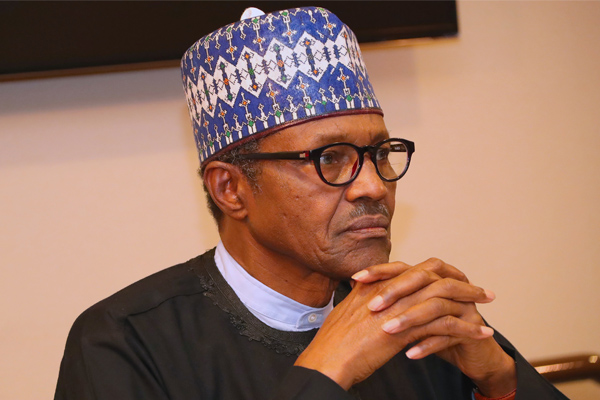This post has already been read 2341 times!
• ‘Only groups’ backers will condemn Obasanjo’
• Ex-president’s stance divisive, says govt
The Yoruba socio-cultural organisation, Afenifere, yesterday faulted the Federal Government’s reaction to comments by former President Olusegun Obasanjo on the activities of Boko Haram and Islamic State in West Africa (ISWAP).
Minister of Information and Culture Lai Mohammed in a statement in Abuja had said Obasanjo’s remarks attributing ethno-religious motives to attacks by the terrorists were deeply offensive and divisive and below the status of an elder statesman.He said the former president’s prescriptions for ending the crisis, which include seeking assistance outside the shores of the country, were belated, as President Muhammadu Buhari had already performed outstandingly on the matter.
The minister further said it was tragic that a man who fought to keep Nigeria one is the same seeking to exploit the country’s fault lines at the twilight of his life. He concluded that Obasanjo’s call for consultations with various groups to tackle Boko Haram were neutralised by the ill-advised, tactless and distasteful comments.
He told The Guardian that it was least expected of the government to have reacted to Obasanjo’s comments if truly it was making concerted efforts to address the crisis.
Obasanjo is someone who is not given to frivolities. There is no way he would have made such a comment, given his security background, without some element of facts, Odumakin said, stressing: “What I expect the government to do is intensify its efforts to curb the menace of the two deadly groups instead of attacking the former president.”
He said: “Apart from the fact that several lives and property have been wasted in the last couple of years due to the crises caused by the two deadly groups, their activities have also led to the grouping of Nigeria among countries like Iraq and Afghanistan. If a government is vilifying Obasanjo for saying what he said, on whose side is the government?”
But the president of Yoruba Ronu Leadership Forum, Mr. Akin Malaolu, took a slightly divergent stance. He blamed the government for responding to Obasanjo and equally condemned the former president for raising the alarm on the alleged plot to ‘Fulanise and Islamise’ the country when he (Obasanjo) benefitted from the Fulani hegemony.
He said: “There is substance in Obasanjo’s comment and there is need for the country to set up sociological enquiries to address the issues of Boko Haram and herdsmen killings. But Nigerians would not easily forget that it was the same Fulani military generals that helped Obasanjo to become Head of State in 1976 after General Murtala Muhammed was assassinated. And he reciprocated by assisting the Fulani to produce the late President Shehu Shagari in 1979 in a controversial presidential election, which many believed Chief Obafemi Awolowo won.
“The same Fulani people helped him (Obasanjo) to become president in 1999 when he came out of the prison and was imposed on Nigerians as president. This was after Obasanjo had helped the Fulani to annul the June 12, 1993 presidential election, acclaimed to have been won by the late Chief M.K.O Abiola. If anybody enjoyed or benefitted from the ‘Fulanisation’ of Nigeria, Obasanjo is number one.”
He added: “We must tell ourselves the truth that the North is a country and Nigeria is inside it, going by the hold of the emirate system of government still everywhere in the north. And like creeping bulls, they call shots in all facets of government administration. That is our bane today.”
Part of Lai Mohammed’s statement reads: “Since the Boko Haram crisis, which had been simmering under the watch of Obasanjo boiled over in 2009, the terrorist organisation has killed more Muslims than adherents of any other religion, blown up more mosques than any other houses of worship and is not known to have spared any victims on the basis of their ethnicity. It is therefore absurd to say that Boko Haram and its ISWAP variant have as their goal the ‘Fulanisation and Islamisation’ of Nigeria, West Africa or Africa,” the minister said.
The minister noted that Obasanjo’s comments are therefore as insensitive and mischievous as they are offensive and divisive in a multi-ethnic and multi-religious country like Nigeria. He also wondered why there was no limit to how far the former president would go in throwing poisonous darts at his perceived political enemies.
“Shortly after assuming office in 2015, President Buhari’s first trips outside the country were to rally the support of Nigeria’s neighbours – Benin, Cameroon, Chad and Niger – to battle the terrorists. The president also rallied the support of the international community, starting with the G7, and then the U.S., France and the UN.“That explains the massive degrading of Boko Haram, which has since lost its capacity to carry out the kind of spectacular attacks for which it became infamous, and the recovery of every inch of captured Nigerian territory from the terrorists,” Mohammed said.
[The Guardian]



